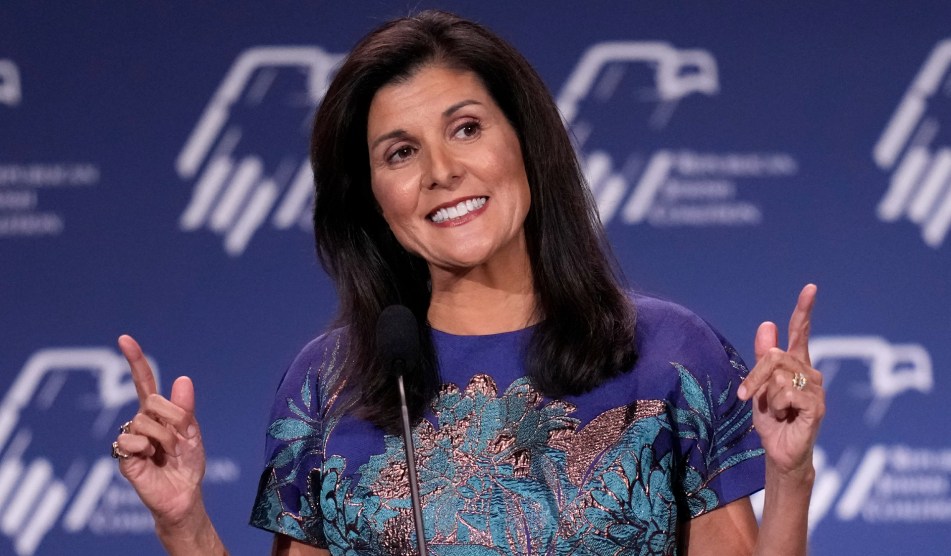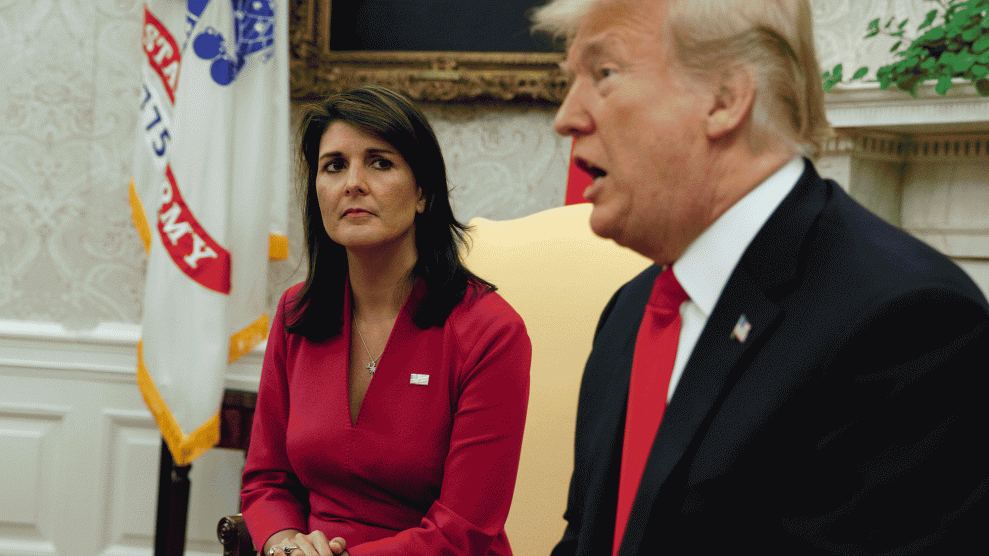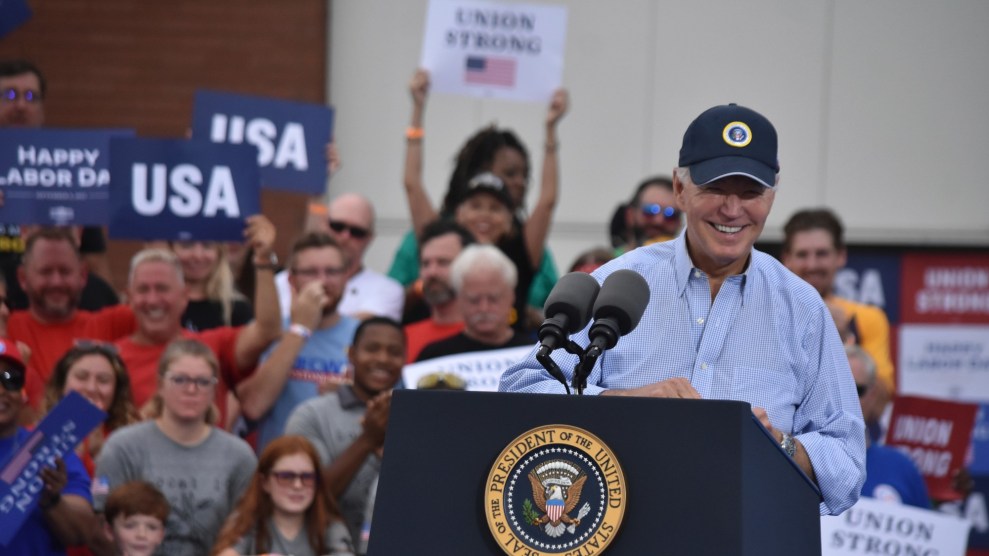
Presidential candidate Nikki HaleyJohn Locher/AP
Today, I think we’ve seen the entire 2024 Republican presidential primary writ small. Let’s start with specifics and then go broad.
This morning, former South Carolina Gov. Nikki Haley announced she is running for president. She did so at a relatively normal rally with a pre-Trumpian tone, a reminder that once a “BYAH” could sink a campaign. And it was so startlingly normal, the commentariat must have looked at it and wondered: Is this a moment to take this rather odd contender seriously? (Most said “no”—except Bret Stephens, who said someone told him car dealership owners like her.)
Other pundits noted that much as she presented herself as the sweet voice of moderation, Haley still is far from a centrist herself, not the least in her appeasement of Trump. What’s even harder to stomach, as my colleague Inae Oh noted, was Haley’s admiring shoutout to the radical pastor John Hagee, who former GOP presidential nominee John McCain once described as “crazy and unacceptable.” (When the rally ended, the new Republican presidential hopeful walked off to “American Girl” by Tom Petty. A fitting choice: Petty, too, had his period of believing the Confederate flag is not racist.)
Trump responded by launching an email attack about the “real” Haley. He noted a specious connection between his former UN ambassador and Hillary Clinton. He harkened back to Haley’s support for reforming Social Security and Medicaid. He questioned her desire to find a “peaceful” solution in Ukraine because she has publicly discussed funding fighter jets that (he says) “fuel the war.”
Got it? And so we have the pattern that is going to be repeated over and over and over again:
- A presidential candidate will announce a run against Donald Trump.
- The candidate will (cautiously) attack Trump.
- And, some will ask, is there an opportunity for this Republican—just maybe? Look at how their attacks clearly signal their independence from Trump!
- Then, wait, is that candidate really so different from Trump? She or he is connected to fringe ideas too. And is a Republican. And, probably to varying degrees, has a history of having sold out to Trump.
- And so, with all of that, why in the world are people even imagining that the challenger has a chance?
- Finally, Trump attacks.
- In his attacks, he will highlight the reasons why he won in 2016 (and, of course, again in 2020). He will respond by being in some way bigoted (specious Clinton connection) but also strong on issues that alienated the mainstream Republican party from a potential base of voters (“entitlement reform” and foreign wars).
And this is how most of the Republican primary will play out.
Imagine these stages as if they were an old standard song. A series of notes that can be doggedly followed or wildly adapted. Think of the difference between Julie Andrews‘ and John Coltrane’s “My Favorite Things.” How Republican challengers move through them in this primary will either be direct (like Haley) or evasive (like DeSantis) but the essential structure will be the same.
It’s clear why this loop seems inevitable: If you were actually capable of making an honest case against Trump that is sufficiently strong to run against him, then you are not likely to remain enough of a Republican to run as the party’s nominee in 2024. There is no way to imagine carrying forward his ideas without him.
Let us call this Haley’s Paradox: Any 2024 campaign against Trump in the primary must explain both why Trump would be a bad enough choice for them to need to run (vote for me, not him), and why it is also not a criticism of Trump (vote Republican!). The candidate must be a synthesis of pre- and post-Trump Republicanism, and yet that means this person will obviously carry the flaws of both. Haley can be criticized for her fealty to Trump (her role in his administration on foreign policy) and also as indicative of what he stood against (her actual foreign policy positions). This contradiction will be at the heart of this endless cycle in the primary.
Still, paradoxes are just bouts of the illogical; politics has never really made rational sense. There is no reason to believe this means Donald Trump will inevitably be the nominee. It just means that on most days, as we wait and ponder what will finally happen in the 2024 presidential election, we also will see if any candidate can solve Haley’s Paradox. I doubt the theory’s inspiration has a chance.














